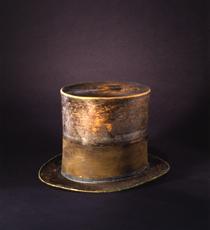Lincoln’s relationship with the press was an ongoing source of drama and great quotes. Now, Lincoln scholar Harold Holzer has released a new book on the topic, and it looks intriguing. That revelation about Lincoln’s co-ownership of a newspaper is a particular surprise.
Throughout his career, Lincoln understood the urgency, and difficulty, of using the press, especially since during election season presidential candidates were expected to stay home and not campaign.
“Public sentiment is everything,” he said during his 1858 debates with Stephen Douglas, and he went to great lengths to shape that sentiment — including writing editorials himself, anonymously, and even, for a time, secretly co-owning a German-language newspaper in Illinois.
As president he spent hours tending to the prodigious egos of important newspaper editors and cultivating the goodwill of energetic young reporters. Journalists would show up at the White House, uninvited, at odd hours, and the president would have them in, put his feet up on his desk and exchange news and gossip, no matter how weary he was.
via Lessons of Abraham Lincoln’s war with the press: Commentary | masslive.com.


